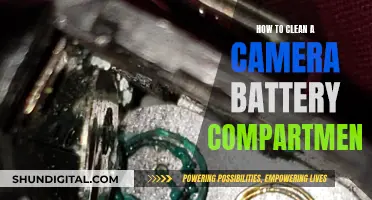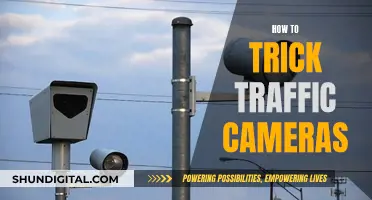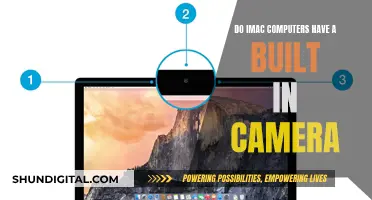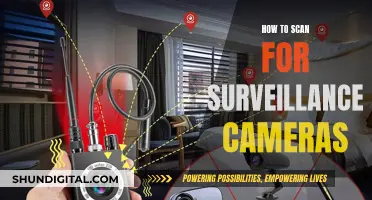
If you've received a traffic camera ticket in Florida, you might be wondering what to do next. The first thing to know is that you should not ignore the ticket. While it may seem like the easiest option to pay the fine and move on, there are time-related costs associated with fighting the ticket that could save you money in the long run.
The next step is to review the information on your violation notice. Red-light camera violations are assessed to the registered owner of the car, so even if you weren't driving, you may still receive a ticket. Check the location of the camera, the date and time of the violation, and review any photos or videos provided. If you weren't the one driving, you can fill out an affidavit form and supply the driver's license number of the person who was.
You can also contest the ticket in court, especially if you believe you have a valid defence. For example, if the photo is blurry and doesn't clearly identify you as the driver, or if you believe the camera was malfunctioning.
To improve your chances of reducing the fine or getting the charge dismissed, it's recommended to consult a local attorney who specialises in traffic tickets. They can guide you through the legal process and ensure all deadlines are met.
| Characteristics | Values |
|---|---|
| When to receive a ticket | When a vehicle is detected running a red light at an intersection equipped with automated cameras. |
| How to receive a ticket | Through the mail, including details of the violation and images captured. |
| Who receives the ticket | The registered owner of the vehicle, not necessarily the driver. |
| Cost of a ticket | $158, rising to $262 if not paid after the first notification. |
| Points on license | No points are added to the license for a red light camera ticket. |
| Insurance implications | Red light camera tickets are not considered moving violations and do not affect insurance rates. |
| Defenses | Blurry photo, equipment malfunction, not the one driving the vehicle, unclear signage, faulty brakes, etc. |
What You'll Learn

Contest the ticket in court if you weren't driving
If you weren't driving when the traffic camera ticket was issued, you can contest the ticket in court. Here's what you need to do:
Step 1: Review the Information on Your Violation Notice
If you receive a notice of violation from a red-light camera, it's because your car was recorded running a red light. Check the location of the camera, the date and time of the violation, and review the photos and video footage. This information is typically available on a website listed on your violation notice.
Step 2: Download and Fill Out an Affidavit Form
You can usually find an affidavit form on the same website where you viewed the photos and video evidence. If not, contact the agency in charge of issuing the red-light camera tickets, as their contact information should be listed on the violation notice. On the affidavit, provide the name, address, birth date, and if possible, the driver's license number of the person driving your car at the time of the violation. If your car was stolen, attach a copy of the police report instead.
Step 3: Evaluate Exemptions to the Law
Violation notices are sent to the registered owner of the car, but there may be exemptions that apply. For example, if you recently sold your car and the registration hasn't been updated, the new owner may be responsible. Provide information about the new owner in your affidavit.
Step 4: Get Your Affidavit Notarized
Some counties in Florida require you to sign your affidavit in front of a notary public, who will verify your identity and certify that you signed the document. This step adds credibility to your affidavit.
Step 5: Submit Your Affidavit Before the Due Date
Submit your completed and notarized affidavit as soon as possible. You typically have 60 days from receiving the violation notice to take action. If you submit an affidavit before the deadline, the action against you will be dismissed, and the person you identified as the driver will receive their own notice of violation.
Step 6: Request a Hearing (If Necessary)
If you're unsatisfied with the outcome after submitting your affidavit, you can request a hearing to contest the violation further. Follow the instructions on your notice of violation, and be prepared to incur additional costs associated with the hearing. You may need to fill out a hearing request form, which could be included with your notice or available online.
Step 7: Gather Evidence to Support Your Defense
Before your hearing, gather any evidence that can support your claim. This could include witness testimony or evidence from the scene. For example, if you ran a red light to clear the way for an emergency vehicle, evidence of the emergency could justify your action.
Step 8: Consult a Traffic Citation Attorney
Consider hiring a local attorney specializing in fighting red-light tickets. They can guide you through the process and improve your chances of getting the ticket dismissed. While this option may incur attorney's fees, it could be worth it to avoid the fines and potential impact on your driving record.
Step 9: Appear in Court for Your Hearing
On your hearing date, arrive at the courthouse and wait for your name to be called. During your hearing, stick to the facts and clearly explain your side of the story. You may be questioned by a representative from the city or county that issued the violation, and you have the right to ask them questions as well. After presenting your case, the hearing officer will make a decision.
Remember, it's important to act promptly when contesting a traffic camera ticket. Follow the steps outlined above, and don't be afraid to seek legal assistance if needed.
Focusing Camera Targets in Blender: Easy Tips and Tricks
You may want to see also

Argue the camera malfunctioned or misread your plate
If you've received a traffic camera ticket in Florida, don't panic. There are a few strategies you can use to argue that the camera malfunctioned or misread your plate. Here are some detailed steps to help you build your case:
Firstly, carefully examine the ticket and any accompanying photos or videos. Check the date, time, and location of the alleged violation. If you weren't driving your car at that specific time and location, you have a strong case for disputing the ticket. Additionally, check if the photos or videos clearly show your license plate. If your license plate is not legible or is partially obscured, this gives you a solid basis for arguing that the camera misread your plate.
Next, review the technical requirements for red light cameras in Florida. Florida law mandates specific signage to inform drivers about the presence of red light cameras. Research the local regulations in your area to understand the exact requirements. If the required signs are missing, improperly placed, or do not meet legal standards, you have a valid defense.
You can also request the maintenance and calibration records of the red light camera. Sometimes, these records reveal inconsistencies or malfunctions that could cast doubt on the validity of the ticket. For example, if the camera's accuracy wasn't tested recently, you can argue that the photo is unreliable evidence.
Another strategy is to focus on the quality of the images. Blurred or unclear photographs may not be sufficient evidence to support the violation. Emphasize that the images do not clearly identify the driver or the license plate, which is crucial in Florida.
Finally, consider hiring a skilled attorney who specializes in red light camera cases. They can navigate the legal system and find specific defenses applicable to Florida's jurisdiction. They can also help you build a strong case and increase your chances of a favourable outcome.
Surveillance Cameras: Global Watchful Eyes, Counting Millions
You may want to see also

Prove the light was yellow, not red
If you want to fight a red-light camera ticket in Florida, you must first request a local administrative hearing. If you do not request a hearing by the deadline stated on your notice of violation, the ticket will be converted into a uniform traffic citation. At that point, failure to appear in court may result in a suspension of your license.
- Check the photos and video from the camera: When you receive a notice of violation from a red-light camera, it typically includes a web address where you can watch the video of the actual violation. Review this footage carefully to determine if the light was yellow.
- Assess the quality of the photos or video: If the photo of your vehicle or license plate is blurry, you can argue that it is not clear that your car ran the red light. Any violation must be proven beyond a reasonable doubt, even a traffic infraction.
- Gather evidence to support your defense: If you have witnesses or other evidence that the light was yellow, be sure to bring this to your hearing. You may also be able to argue that you had a valid reason for running the red light, such as clearing the way for an emergency vehicle.
- Consult a traffic attorney: A local attorney specializing in traffic tickets can guide you through the process and help you build a strong defense. They can review the footage and evidence and determine if there are any grounds for disputing the ticket.
Remember, it is important to take swift action and not ignore the ticket, as failing to respond by the deadline can result in additional fines, points on your license, and even a suspension of your license.
Lithium-Ion Camera Batteries: Powering Your Photography
You may want to see also

Show you had to run the light to avoid an accident
If you had to run a red light to avoid an accident, you may be able to successfully fight a red-light camera ticket in Florida. Here are some steps you can take:
Review the Evidence
Obtain the photos or video taken by the red-light camera that issued the ticket. Look for any details that might support your claim that you had to run the light to avoid an accident. For example, check if there is evidence of an emergency vehicle or a funeral procession that would justify your action.
Gather Supporting Evidence
Collect any additional evidence that can support your claim. For example, if there were witnesses to the incident, ask them to provide statements or testify on your behalf. If there is physical evidence at the scene, such as skid marks or vehicle damage, document it through photos or other means.
Consult an Attorney
Consider hiring a local attorney who specializes in fighting red-light tickets. They can guide you through the legal process, ensure that deadlines are met, and help you build a strong case. An attorney can also advise you on the specific laws and requirements in Florida regarding running red lights to avoid accidents.
Contest the Ticket
Follow the instructions provided on your violation notice to contest the ticket. This typically involves submitting a request for a hearing or administrative review. During the hearing, present your evidence and explain why you had to run the red light to avoid an accident. Stick to the facts and provide a clear and concise account of the incident.
Remember, it is important to act promptly when fighting a red-light camera ticket. There are usually deadlines for submitting evidence, requesting hearings, and taking other necessary actions. Failing to meet these deadlines may result in additional fines or other consequences.
Traffic Cameras on Cellphones: Legal or Not?
You may want to see also

Appeal the administrative decision
If you've received a red light camera ticket in Florida, you may be able to appeal the administrative decision. Here are the steps you can take:
Identify the Appropriate Circuit Court
The decision of a hearing officer on a red-light camera ticket is considered an administrative decision and is typically appealed to the circuit court with jurisdiction over the city or county where the violation occurred. There are 20 circuit courts in Florida, and you can find the right one by visiting the Florida courts website. Remember, this appeal is not a new trial, and the appeals court will only consider the information presented at your initial hearing.
Hire an Attorney
Appellate procedures can be complex and often have short deadlines. An attorney, particularly one specializing in appeals, can guide you through the process and ensure you meet all the deadlines. They can also help you draft your initial appellate brief, where you explain why you believe the hearing officer's decision was wrong or violated your rights.
File Your Notice of Appeal and Directions to the Clerk
To appeal an administrative decision, you must act quickly. File a notice of appeal within 10 days of the hearing officer's decision. You can find the necessary forms with the clerk of the court where the hearing took place. This step simply notifies the police department of your intention to appeal. You'll also need to file directions to the clerk, instructing them to begin assembling the record of your hearing. There is usually a filing fee for this process, and if you can't afford it, you can apply for a waiver.
Put Together Your Record on Appeal
The appeals court will only consider the information available to the hearing officer. This includes your original violation, photos, videos, and any evidence you presented at the hearing. Request a transcript of the hearing proceedings, which may incur an additional fee. If you've hired an attorney, they can assist with gathering this information.
Present Your Case to the Appeals Court
The appeals court will review your case and the information presented to determine if the hearing officer's decision was incorrect or violated your rights. If they find in your favor, your ticket will be dismissed. If they uphold the original decision, you may have to pay the fine and possibly incur additional penalties.
Quickly Copy Edits in Camera Raw Like a Pro
You may want to see also
Frequently asked questions
You should pay the fine within 30 days of receiving the ticket. If you don't, your fine will increase, and you will incur court costs and points on your license.
The typical cost for a red light camera ticket in Florida is $158. This fee can rise to $262 if you don't pay the ticket after the first mailed notification.
You can fight a traffic camera ticket by checking the quality of the photo or video, gathering evidence to support your defense, or consulting a traffic citation attorney.
Ignoring a traffic camera ticket can result in a suspended license, increased fines, and a fee to reinstate your driver's license.







